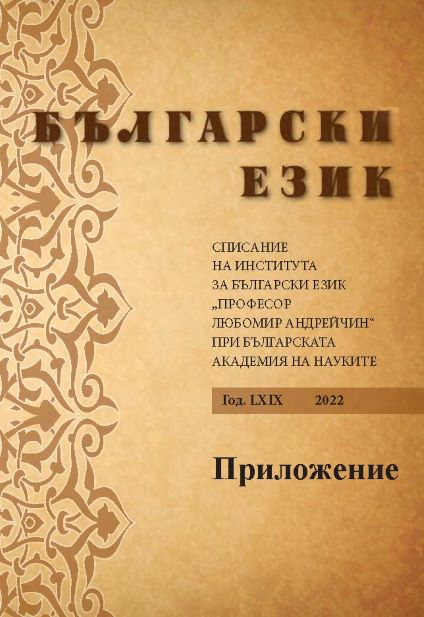Семантична класификация на предикатите за състояние в български
A Semantic Classification of State Predicates in Bulgarian
Author(s): Svetla KoevaSubject(s): Language studies, Language and Literature Studies, Theoretical Linguistics, Applied Linguistics, Philology
Published by: Институт за български език „Проф. Любомир Андрейчин“, Българска академия на науките
Keywords: state predicates; individual-level and stage-level predicates; semantic characteristics of state predicates
Summary/Abstract: The object of study are state predicates and their classification based on semantic features. Different classifications of state predicates are briefly presented; in general, two types of classifications can be distinguished: classifications that group predicates based on a common property, such as emotional states, perceptions, cognitive processes, etc., and classifications that group predicates based on the presence or absence of some semantic feature, such as stativity, duration, etc. In the former case, the classifications (if detailed) are contradictory, because they are not based on clear-cut criteria, and in the latter the classifications are very general, as the distinct groups include predicates that are diverse in type and compatibility. In this study we will present the main classes of state predicates in a unified system and will illustrate them with appropriate examples (focusing only on lexical states). The following semantic features of the topical argument (the semantic subject of the predicate, regardless of its syntactic realization) are distinguished: mental experience, physical experience, conscious participation, animacy and inanimacy. Based on them, state predicates are classified, and the grouping makes it possible to draw conclusions about the distribution of permanent and temporary state predicates, as well as about the syntactic realization of the topical argument.
Journal: Български език
- Issue Year: 69/2022
- Issue No: Special
- Page Range: 367-389
- Page Count: 23
- Language: Bulgarian

